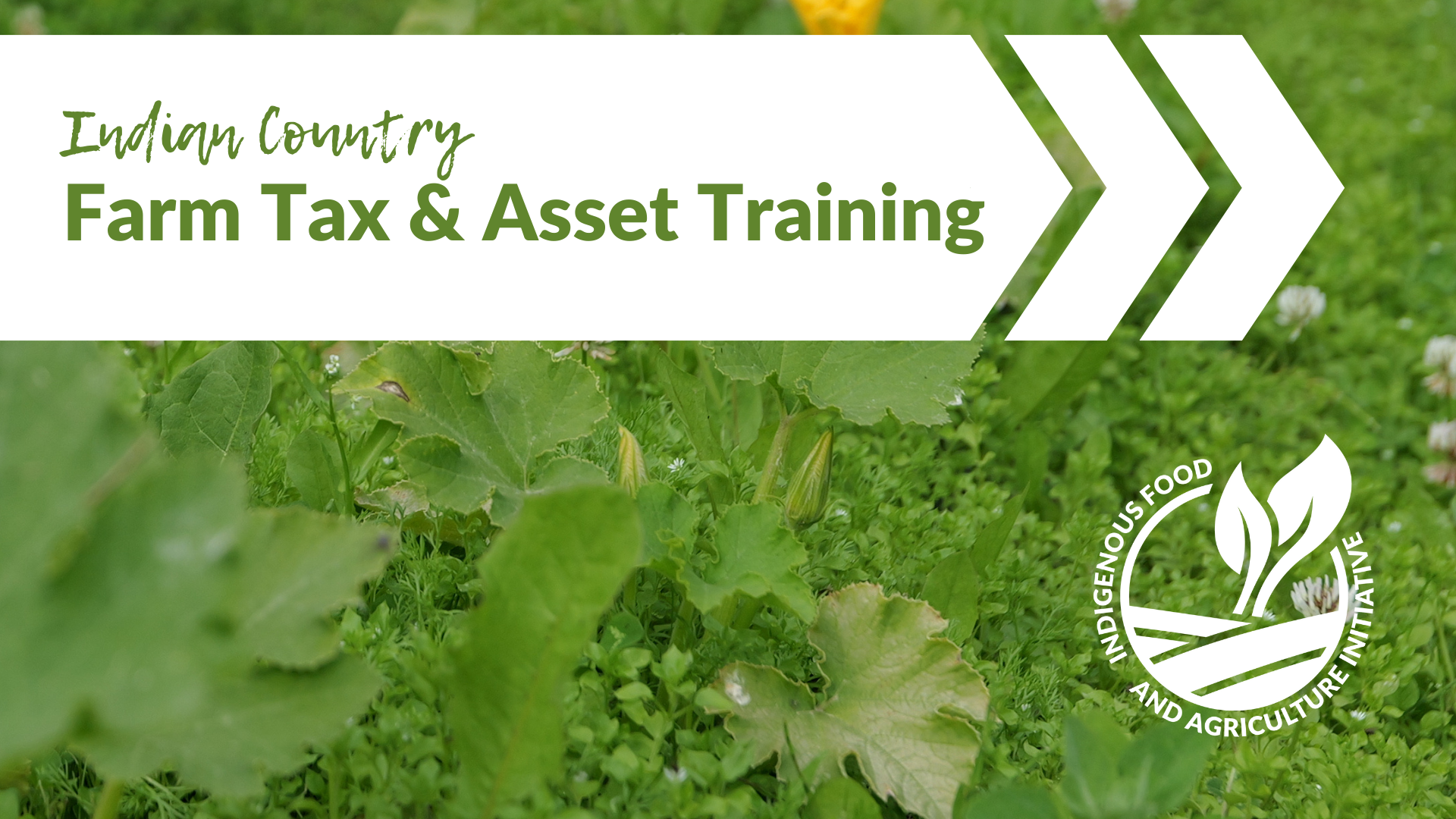Policy & Resources
Policy Briefings

IFAI Policy Brief January 7, 2025
Summary IFAI is hosting a webinar on Jan. 9 about implications for Tribal peoples and agriculture in the newly published Scientific Report of the 2025 Dietary Guidelines Advisory Committee. This webinar is also in preparation for anyone wishing to present oral...

IFAI Policy Brief December 17, 2024
Summary This is the last policy brief for 2024. We will resume in early January. December 24 is the submission deadline USDA’s Food and Nutrition Service is requesting comments about information collection activities regarding the Food Delivery Portal. IFAI and the...

IFAI Policy Brief December 9, 2024
Summary IFAI staff will be speaking at several sessions during the Intertribal Agriculture Council Annual Conference in Las Vegas, Nevada on Dec. 10, 11, and 12. We will also have a table in the Exhibitor and Sponsor Hall throughout the week. There is still time for...
Educational Resources
No Results Found
The page you requested could not be found. Try refining your search, or use the navigation above to locate the post.
Census Information
ANNUAL MARKET VALUE of ai/An Ag products*
Number of AI/AN Farms in 2022
Number of AI/AN PRODUCERS in 2022
Trainings/Webinars
The materials are based upon work supported by the U.S. Department of Agriculture, under agreement number FSA22CPT0012189.
Click the button below to access educational materials regarding tax and asset management.
EATS Academy
The Empowering Agriculture through Tribal Sovereignty (EATS) Academy is an ecosystem of trainings and resources developed by the Indigenous Food and Agriculture Initiative to support Tribal governments and producers develop robust food systems throughout Indian Country.
As needs for EATS Academy resources change and evolve for Tribal governments and producers, the academy will reflect updated information as it becomes available. Sign up to receive communications on updated resources and news related to the Indigenous food and agriculture.

Support for the EATS Academy has been generously provided by the Walmart Foundation.
This centralized resource ecosystem is intended to bridge gaps in information available to Tribal governments and producers. This is in no way complete, but it is a foundation for Tribal stakeholders to start their work in Tribal food sovereignty efforts.
Your feedback is important – we want to hear from you! What educational resources are missing? Send an email to tribalag@uark.edu.
Start below by sorting the information based on which category best fits your role, interests, goals, or areas of expertise.
Model Tribal Food and Ag Code
The Model Tribal Food and Agriculture Code Project serves as a resource for Tribal governments, providing a comprehensive set of model laws for review, adoption, and implementation. The model laws contained in the code were designed by IFAI and contributing attorneys to facilitate agricultural production, food systems development, and health outcomes improvement in Indian Country.
 Putting Tribal Sovereignty in Food Sovereignty
Putting Tribal Sovereignty in Food Sovereignty























